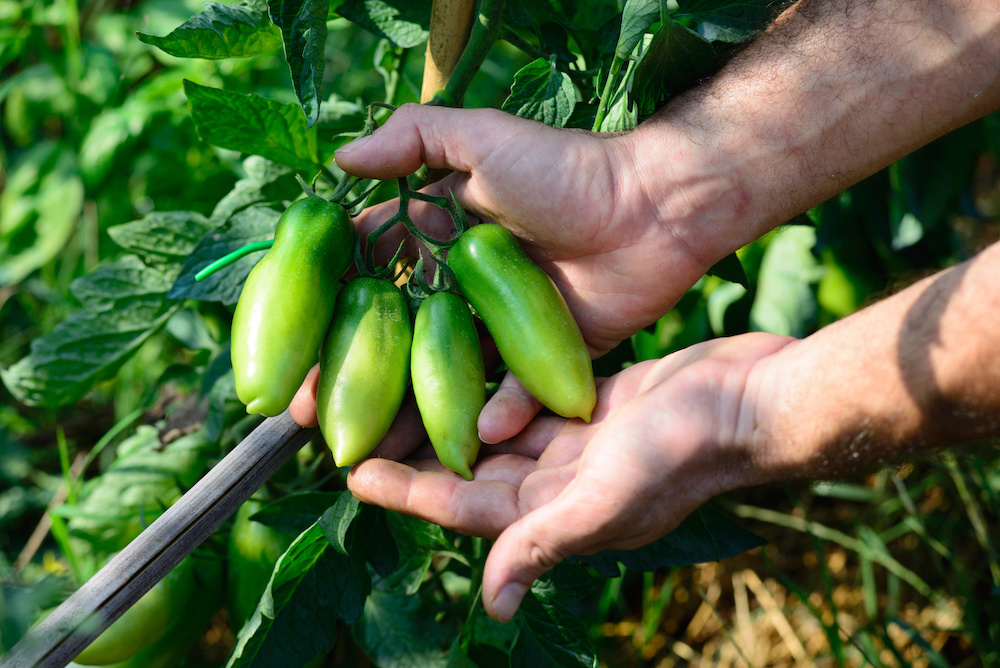What does the PDO label mean?
The PDO abbreviation stands for “Protected Designation of Origin“. Officially recognized by the European Community, it is the best known and most used certificate when it comes to typical products.
DOP certified: guaranteed authenticity, quality and traditional
Only those products which have characteristics linked to a specific geographical area and its traditions can obtain this certificate. The PDO seal is therefore assigned only to foods produced and processed in specific areas using traditional methods.
To be certified as PDO, the product must also comply with specific guidelines based on its history, territory and processing methods and very strict rules must therefore be followed throughout all stages of production. The label is applied and certified by the European Community and guarantees compliance with the regulations.

A GUARANTEE FOR THE CONSUMER
Authenticity and quality is guaranteed. The PDO label is given exclusively to a traditional product, original from its specific historic geographical area, where its ingredients are grown and processed according to the strict traditional methods. The transformation of a PDO product is local: the entire production cycle takes place in the ideal areas for the product, which cannot be reproduced elsewhere.
SAN MARZANO PDO TOMATOES
FEATURES
The berries of the tomato of the San Marzano PDO variety must have the following characteristics to be suitable for peeling:
- A fruit with two or three locular cavities and an elongated cylindrical shape, tending to pyramidal, with a length of 60 to 80 mm from the stem scar to the style
- Angled / rounded cross section
- Axle ratio of no less than 2.2 + 0.2
- Typical red color of the variety
- Easy detachment of the cuticle
- Reduced presence of placental voids
- PH no higher than 4.50
- Refractometric residue at 20 °C equal to or greater than 4.0%
- Limited presence of vascular bundles thickened in the petiolar area
CULTIVATION OF PDO TOMATOES

The Agro Nocerino Sarnese area extends within the plain of the Sarno river, and is mostly covered by volcanic material. The soils are very deep and soft, with a good supply of organic matter and a high amount of phosphorus and potassium.
The area is very rich in water due to the presence of numerous springs and abundant aquifers at different depths. the climate of the Agro Nocerino Sarnese benefits from the influence of the sea. The temperature variations are not elevated and the rains are abundant in autumn, winter and spring; scarce or almost nil in summer.
The transplant is carried out from the first fortnight of April to the first ten days of May. The exclusive form of breeding must be vertical with suitable braces and horizontal wires. Any practice that would tend to alter the natural biological cycle of the tomato, with particular regard to ripening, is prohibited.
The fruit harvest is between July 30th and September 30th and must be done exclusively by hand, repeatedly throughout this period, as each fruit reaches full maturity.
The collected fruit must be carefully arranged and transported in plastic containers with capacities ranging from 25 to 30 kg.
THE AREA
The tomatoes obtained from the San Marzano varieties labeled as Protected Designation of Origin, "San Marzano Tomatoes from Agro Sarnese-Nocerino PDO”, must be produced by farms, and transformed by industrial companies, both located in the precisely limited territorial areas within some municipalities of the provinces of Salerno, Avellino and Naples.

 FiorFiore USA
FiorFiore USA